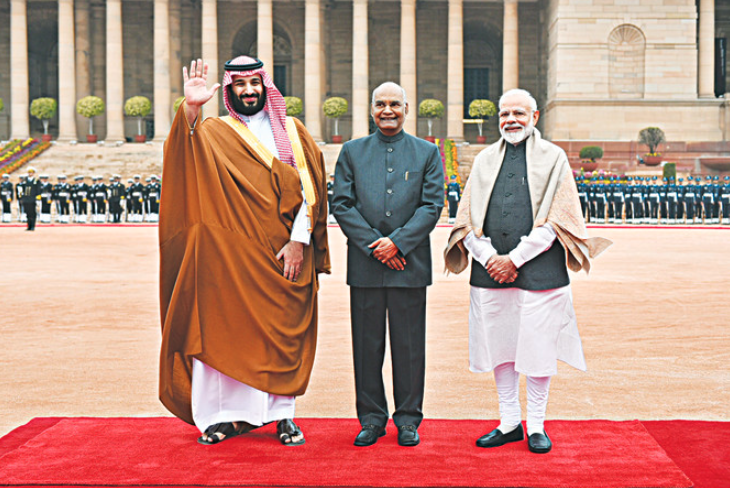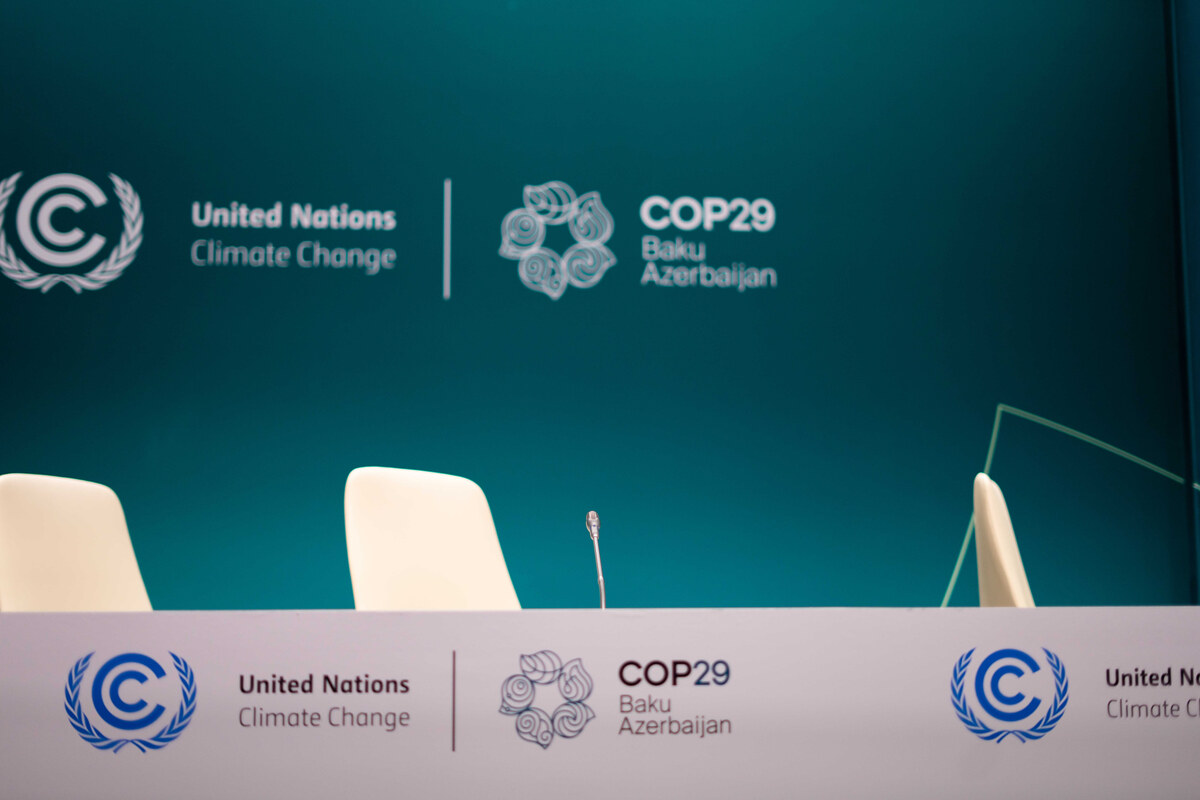RIYADH: Trade and economic relations between India and Saudi Arabia have taken another step forward after the countries’ inaugural High-Level Task Force on Investments was held earlier this week.
The body was set up in 2023 when the Kingdom’s Crown Prince Mohammed bin Salman made an official visit to the Asian nation – a visit that came four years after he pledged investments worth $100 billion in India during a trip to New Delhi.
The first meeting of the task force was held virtually on July 28, and was co-chaired by Saudi Arabia’s Energy Minister Prince Abdulaziz bin Salman and PK Mishra, principal secretary to the Indian Prime Minister Narendra Modi.
During the talk, India invited Saudi Arabia’s Public Investment Fund to establish an office in the Asian nation, as it seeks to attract funds from the Kingdom.
“Constructive discussions were held on various opportunities for bilateral investments in diverse areas in public and private sector, including refining and petrochemical plants, new and renewable energy, power, telecom, innovation, among others,” said India’s prime minister’s office in a statement after the High-Level Task Force meeting.
The statement further stated that an empowered delegation led by the country’s Petroleum Secretary will visit Saudi Arabia for follow-up discussions on the mutually beneficial investment in the oil and gas sector.
Both countries also agreed to regular consultations between their technical teams to take forward the discussions and reach an agreement on specific investments.
India also invited the Saudi energy minister to visit New Delhi for the next round of High-Level Task Force meetings.

Crown Prince Mohammed bin Salman, India’s President Ram Nath Kovind, center,and Indian leader Narendra Modi at a ceremonial reception in 2019. (AFP)
India and Saudi Arabia: A history of long-standing relationship
Even though India and Saudi Arabia have been sharing strong economic and trade relations since 1947, their bilateral ties took a new turn after the signing of the Delhi Declaration in 2006.
It was followed by the Riyadh Declaration in 2010 when then-Indian prime minister Manmohan Singh visited Saudi Arabia, elevating the bilateral relationship to a strategic partnership between both nations.
Later, the visit of Modi to Saudi Arabia in 2016 captured the spirit of enhanced cooperation in the political, economic, security and defense realms between Riyadh and New Delhi.
When the crown prince visited India in 2023, on the sidelines of the G20 Leaders’ Summit and to co-chair the first Leaders’ Meeting of the India-Saudi Arabia Strategic Partnership Council, both countries signed eight agreements across several fields including energy, banking, and investment, as well as manufacturing, archival cooperation, anti-corruption and water desalination.
Apart from the growing economic and trade ties, India and Saudi Arabia also share a strong emotional and cultural relationship, with the Kingdom being the most sought-after destination for Indian talents and religious tourists.
Data from the Indian embassy in Riyadh revealed that more than 2.65 million Indians are living in Saudi Arabia, who act as a “living bridge between the two countries.”
The embassy also added that India-Saudi Arabia cultural cooperation has also been expanding in the novel areas of cinema and entertainment, sports activities such as cricket and football and tourism exchange in recent years.
Latest trade statistics between Saudi Arabia and India
According to data from the Consulate General of India in Jeddah, Saudi Arabia is the Asian country’s fourth-largest trade partner, while India is the Kingdom’s second-largest trade partner.
The Consulate General of India also acknowledges that Saudi Arabia is not just a trading partner, but a “major pillar for its energy security and an important economic partner for investments, joint ventures, and transfer of technology projects.”
Data from the General Authority for Statistics reveal that Saudi Arabia’s exports to India in 2023 stood at SR113.35 billion ($30.20 billion), while the Kingdom’s imports to the Asian nation amounted to SR43.57 billion.
In 2023, Saudi Arabia was the third largest crude exporter to India, amounting to 39.5 million tonnes, accounting for 16.7 percent of the country’s total oil imports.
Another report released by GASTAT in July noted that Saudi Arabia’s outgoing shipments to India were worth SR8.03 billion in May.
In terms of non-oil exports, the Kingdom exported goods worth SR2.23 billion in May, with chemical and allied products leading the chart with shipments valued at SR1.27 billion.
Saudi Arabia also exported plastic and rubber products to India totaling SR448 million in the same month, while outgoing shipments of base metals accounted for SR347.8 million.
On the import side, shipments worth SR3.54 billion from India reached Saudi Arabia in May.
Mechanical equipment and electrical appliances were the most imported goods from India to the Kingdom in May totaling SR886.1 million.
In the same month, India exported chemical and allied products worth SR470.4 million, followed by plant products and base metals at SR580.3 million and SR342.2 million, respectively.
Developments in the tourism sector
Apart from trade relations, India and Saudi Arabia also share strong ties in the tourism sector.
Over 1.5 million Indian tourists visited the Kingdom in 2023, representing a rise of 50 percent compared to the previous year, according to the Saudi Tourism Authority.
In a bid to elevate the number of Indian tourists visiting the Kingdom, the STA organized networking events in Mumbai, Ahmedabad, Bengaluru, and Delhi and interacted with travel trade associations in February.
The STA, as a part of its broader tourism strategy, aims to bring in 7.5 million Indian visitors over the next seven years.
Data from the Indian Ministry of External Affairs reveals that more than 170,000 Indian pilgrims performed Hajj in 2024, marking a significant increase from 139,000 and 57,000 in 2023 and 2022, respectively.
The air connectivity between Saudi Arabia and India has also increased by 31 percent between 2019 and 2023. Flights now connect 12 major hubs in India with Saudi cities including Riyadh, Jeddah, and Dammam.
The growth of Saudi Arabia as a global tourist destination is fueled by the Kingdom’s giga-projects such as NEOM, along with developments in areas surrounding Alula, Diriyah and the Red Sea.
India is also emerging as a favorite destination for tourists from Saudi Arabia.
A report released by travel app Wego in July revealed that Saudi Arabia emerged as the top five sources of travelers from the Middle East region to India.
The analysis noted that routes from Riyadh to New Delhi and Riyadh to Lucknow were the most popular among Middle East travelers during the first half of this year.
“The findings suggest a dynamic travel landscape where India remains a key destination for both leisure and business travelers from across the globe, driven by various factors such as tourism, business ventures, and familial connections,” said Bernard Corraya, general manager of Wego India office.































